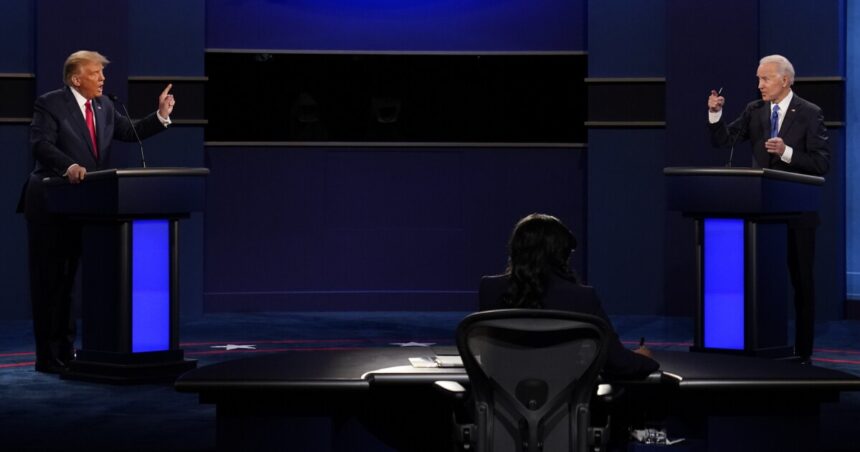The upcoming presidential election will have a significant impact on how the U.S. responds to global conflicts ranging from China to Eastern Europe and the Middle East.
Both President Joe Biden and former President Donald Trump have highlighted their contrasting records while on the campaign trail.
“Madeleine Albright was right. We are the essential nation. If we don’t stand up, who does? Who does? If we don’t unite the world, who can in our interest?” Biden stated at a campaign reception in May.
President Biden has placed a strong emphasis on democratic values and the U.S.’s global leadership. He has worked to strengthen U.S. alliances, particularly in Europe and the Indo-Pacific. However, ongoing conflicts in Ukraine and Gaza have shaped his foreign policy agenda and led to its evolution.
“Russia would have never attacked Ukraine if I were president — never, not even possible. And Israel wouldn’t have happened, the Oct. 7 would have never happened,” Trump asserted at a campaign rally in May.
Trump has criticized Biden’s leadership, attributing conflicts to his absence as president. During his tenure, Trump disrupted established international organizations and agreements such as NATO and the United Nations.
Spencer Bakich, a senior fellow at the University of Virginia’s Miller Center and professor at the Virginia Military Institute, highlighted the stark differences in Biden and Trump’s perspectives on America’s relationships.
President Biden has supported NATO’s expansion and rallied international support for Ukraine amid Russia’s invasion. Meanwhile, Trump has questioned continued support for NATO and urged European countries to increase their defense spending.
On the Middle East, President Biden initially backed Israel in its conflict with Hamas but later faced criticism for the handling of the situation in Gaza. He continues to advocate for a two-state solution.
President Biden’s administration has engaged in diplomatic efforts to navigate the conflict in the Middle East while advocating for the protection of civilians. Trump, during his presidency, emphasized the U.S.’s relationship with Israel and the normalization of relations between Israel and other countries.
Both leaders have approached the conflict in Gaza differently, with Biden showing more sensitivity towards the Palestinian cause. Meanwhile, they have both faced challenges in managing relations with China, both economically and militarily.
While President Biden has sought diplomatic solutions with China and strengthened ties in the Indo-Pacific, Trump’s focus on China involved imposing tariffs and increasing military presence in the region.
In a second term for either President Biden or Trump, crucial decisions will need to be made as the global landscape continues to evolve.





